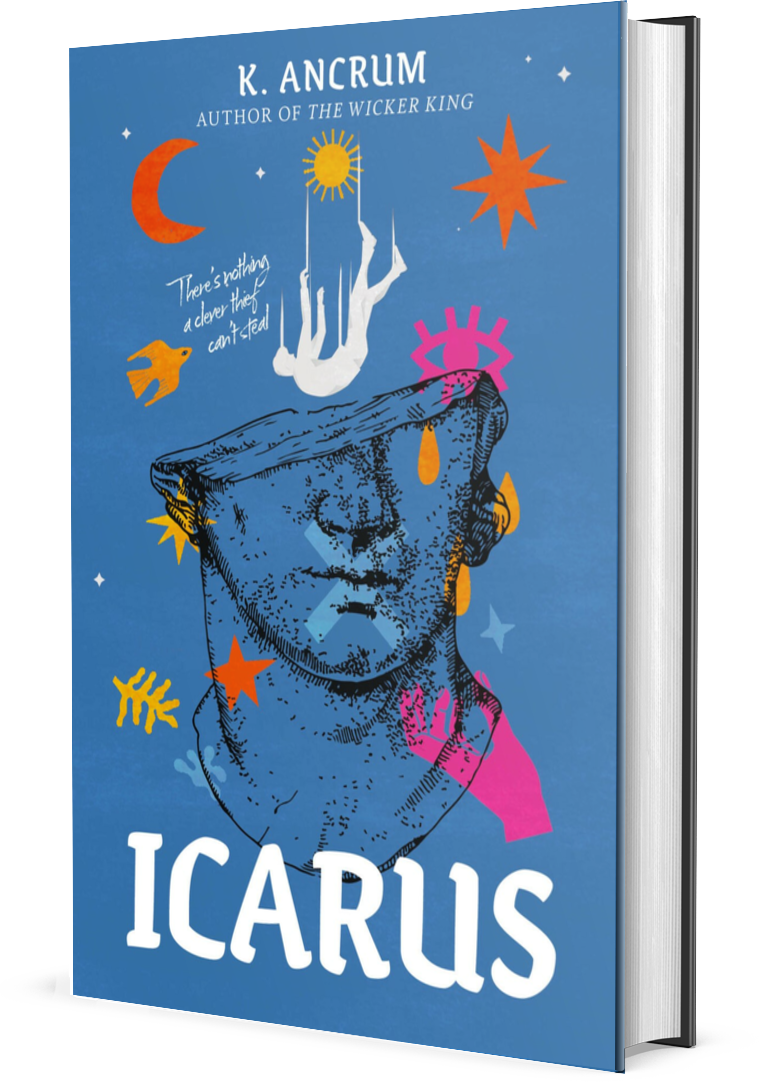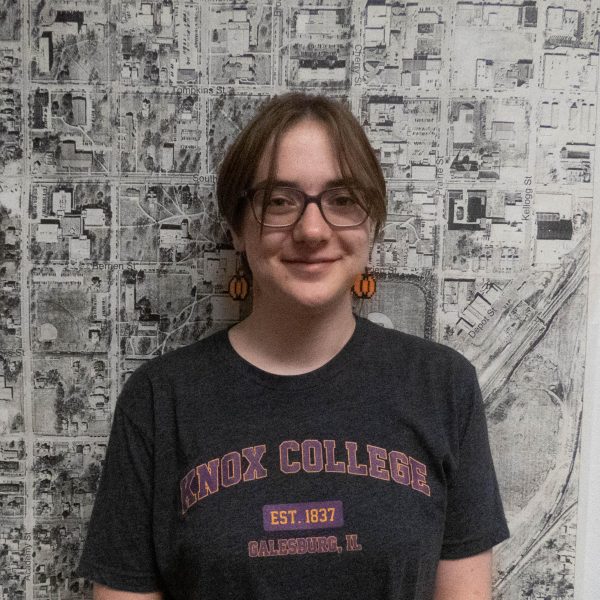“Icarus wrenched the closet door open and sprinted across the room. He skidded halfway, reared back and threw the bolt cutters toward the window. The glass exploded outward and the bolt cutters sailed into the night.” (Ancrum, 2024, p. 449). This is a quote from near the end of the book, and makes very little sense without context. I am using it here, not to confuse you, my dear readers, but to show some of the excitement you will get to feel if you choose to read the book.
Kayla Ancrum, who writes under K. Ancrum, is a YA author who is based out of Chicago. She puts a lot of emphasis on representation and intersectionality within her books. She has won many awards for her books, one of them being the Rainbow List: Top Ten LGBTQ Books for Children and Teens, which she won for “Icarus”.
“Icarus” by K. Ancrum is a book about a young thief, Icarus Gallagher, who commits crimes at the direction of his father. Both Icarus and his father, Angus Gallagher, are remarkable artists and replace the art they steal with their own forgeries. They steal solely from a man named Samuel Black (referred to as Mr. Black most of the time in the book), who they partially blame for the death of Icarus’s mother. Through the events of the book, Icarus meets the son of Mr. Black, Helios. Icarus ends up dating Helios and helps him eventually escape his abusive home.
“Icarus” does discuss a lot of triggering topics, and K. Ancrum mentions these specific features on her website: swearing, underage drug and alcohol use (moderate: cigarettes, drinking, and heroin dependence are mentioned—the character is in recovery), child neglect, sexual scenes (moderate), child abuse, physical violence, imprisonment, severe depression, cancer mention, LGBTQ+ themes, and criminal activity. So please read with caution and keep yourself safe.
I’ve read this book twice. I listened to the audiobook in March and read the book in its physical form in June. I am a somewhat picky reader, and it takes a lot for a book to impress me due to my mass consumption of books throughout middle school and high school. All that said, “Icarus” is a 10/10 book, in my opinion.
Firstly, the way that the book is laid out is simply captivating; the chapters are EXTREMELY short. Most chapters range from one to three pages, and this keeps the book feeling very fast-paced. It feels as though the reader is silently slipping through the story as an observer, instead of being told the story. The characters feel alive and fully fleshed out, all their strengths and flaws on display.
This is one of my favorite quotes, which I feel shows Helios and Icarus’s humanity: “Helios stopped talking and stared up at the ceiling. ‘I’ve always been a disappointment.’ Icarus couldn’t say that Helios wasn’t, he couldn’t say it was going to be okay because he didn’t know if it would be, he didn’t have a paragraph of loving words that he’d rehearsed the way Helios did. He only had the truth. ‘I want you anyway.’ Then, softer, ‘I’ll want you still, all the same.” (Ancrum, 2024, pp. 317-318).
The relationship between Icarus and Helios feels alive and is far from a quick and easy relationship. It seems to encompass all the struggles that come with a relationship, especially queer relationships. Their relationship is complicated and full of passion and love, but also fear. They struggle with their respective families and self-identities. “Being with Helios felt like chess or a waltz. Icarus was surefooted in many ways, but not this. He didn’t know how to play. But it was thrilling.” (Ancrum, 2024, p. 241).
I, as a huge mythology nerd, freaked out over Helios’s name. Helios is the Greek god of the sun, whom people usually think is what Apollo is the god of. Apollo is the god of many things, but the sun is not one of them. Apollo does pull the sun back and forth across the horizon via his chariot, which is where the confusion comes from. Needless to say, I appreciated K. Ancrum getting this small detail correct, and it made my little nerd heart very happy.
I am also a huge fan of found family (an overused trope, but one I would die for), which this book does beautifully. Icarus may have a complicated relationship with his father, to say the least, but he finds some sort of family with his friends. They care for him in many different ways, even when he pushes them away.
Speaking of Icarus’s complicated relationship with his father, Angus Gallagher, Icarus has very complicated feelings about Angus. Angus is cold and verging on neglectful, but can be kind at times. At one point in the book, Angus says this: “Love is never a sin, and the rules of men who don’t understand that don’t matter.”(Ancrum, 2024, p. 353). By the end of the book, he does have some redeeming qualities, and I like to imagine that his and Icarus’s relationship is fixed years in the future.
If you are looking for a book to read this month (especially since it is LGBTQIA+ history month and this book is queer), look no further than “Icarus” by K. Ancrum.








